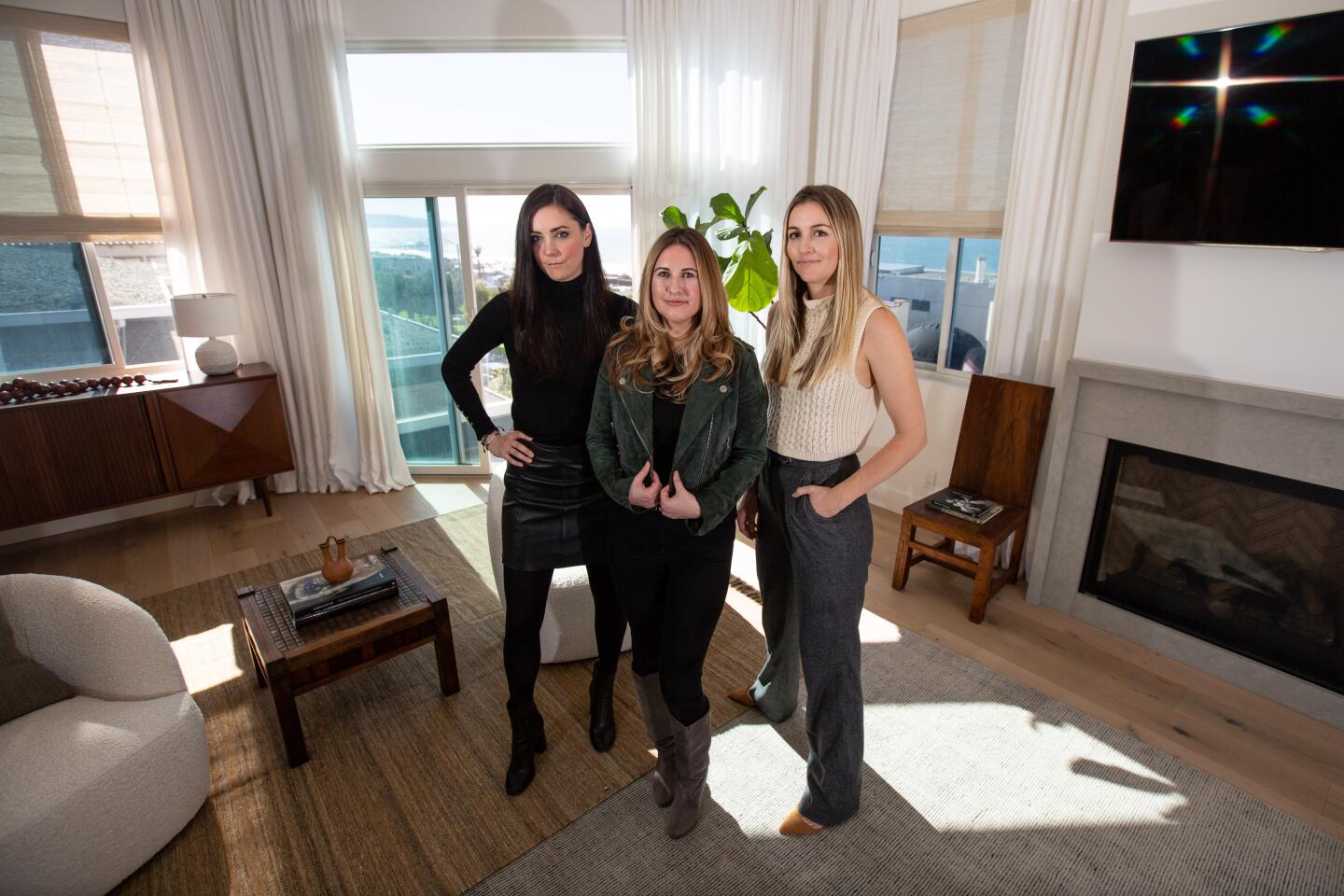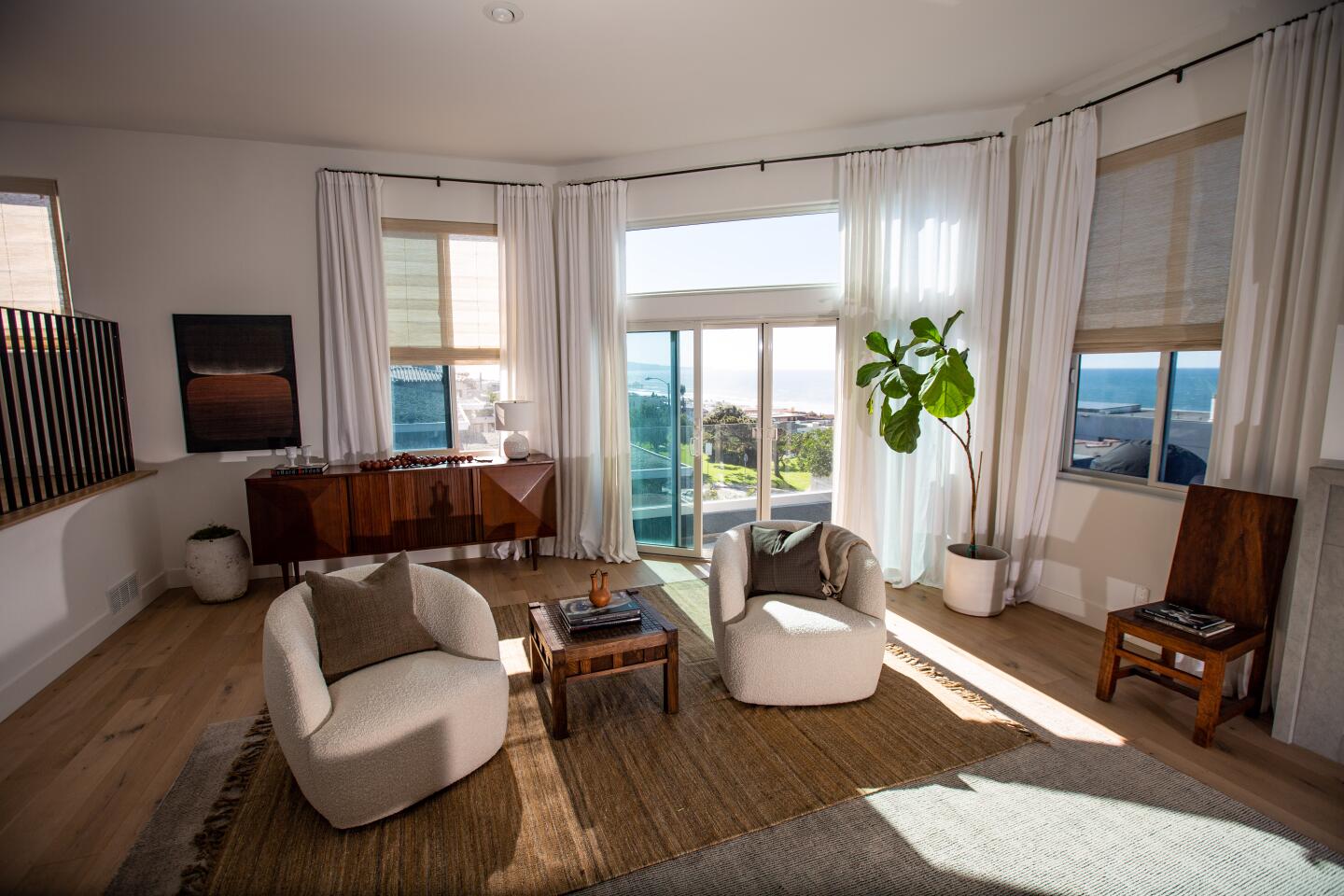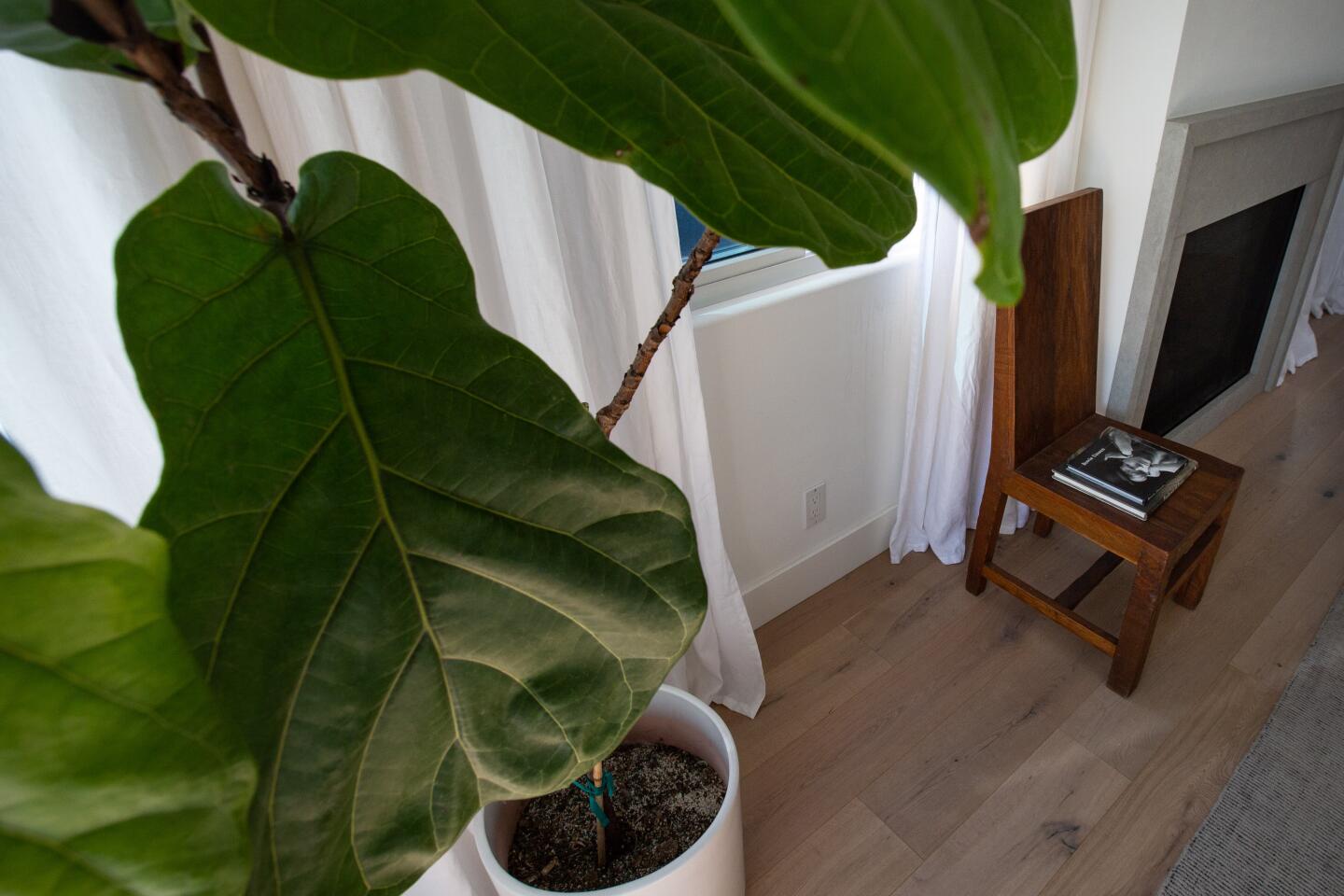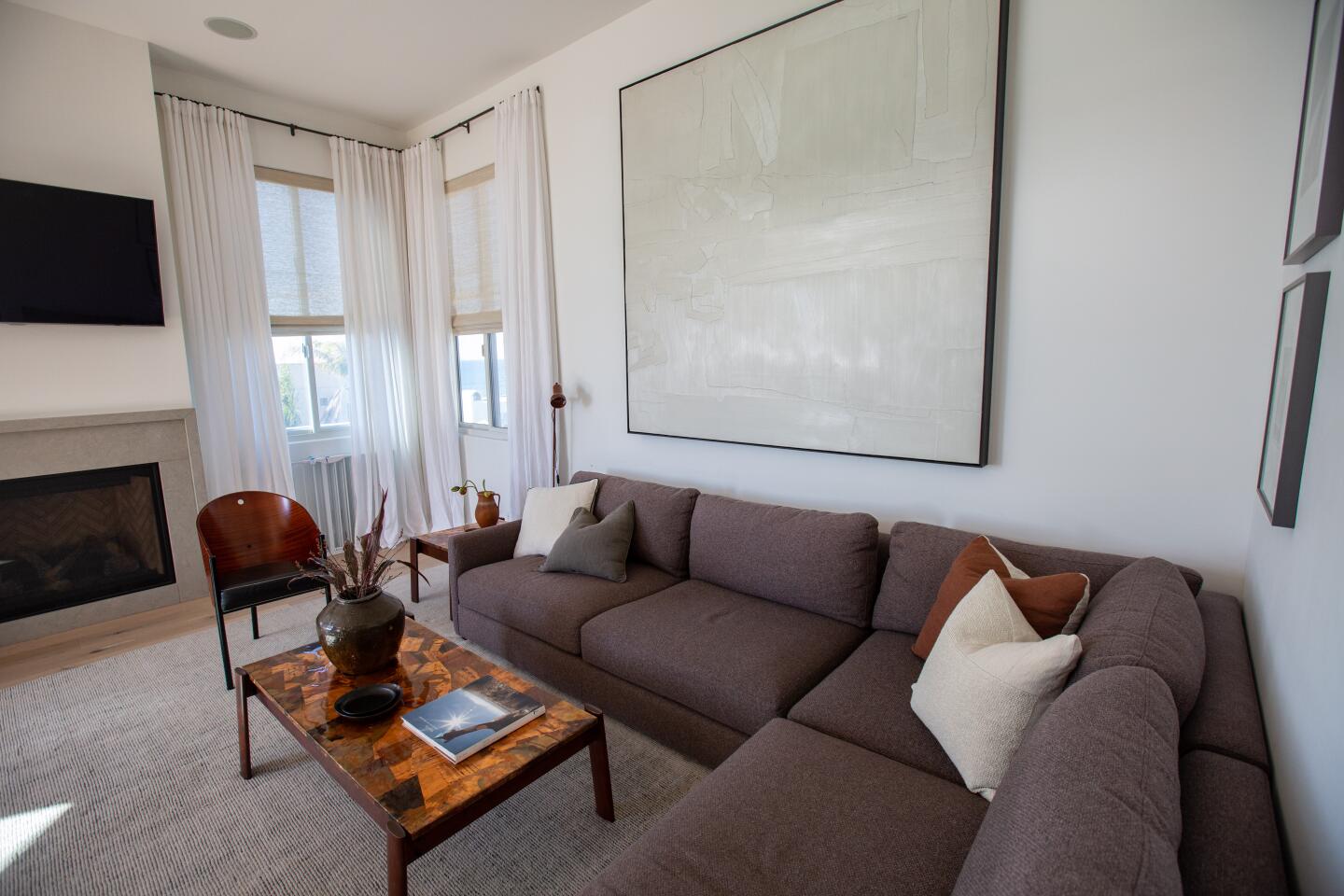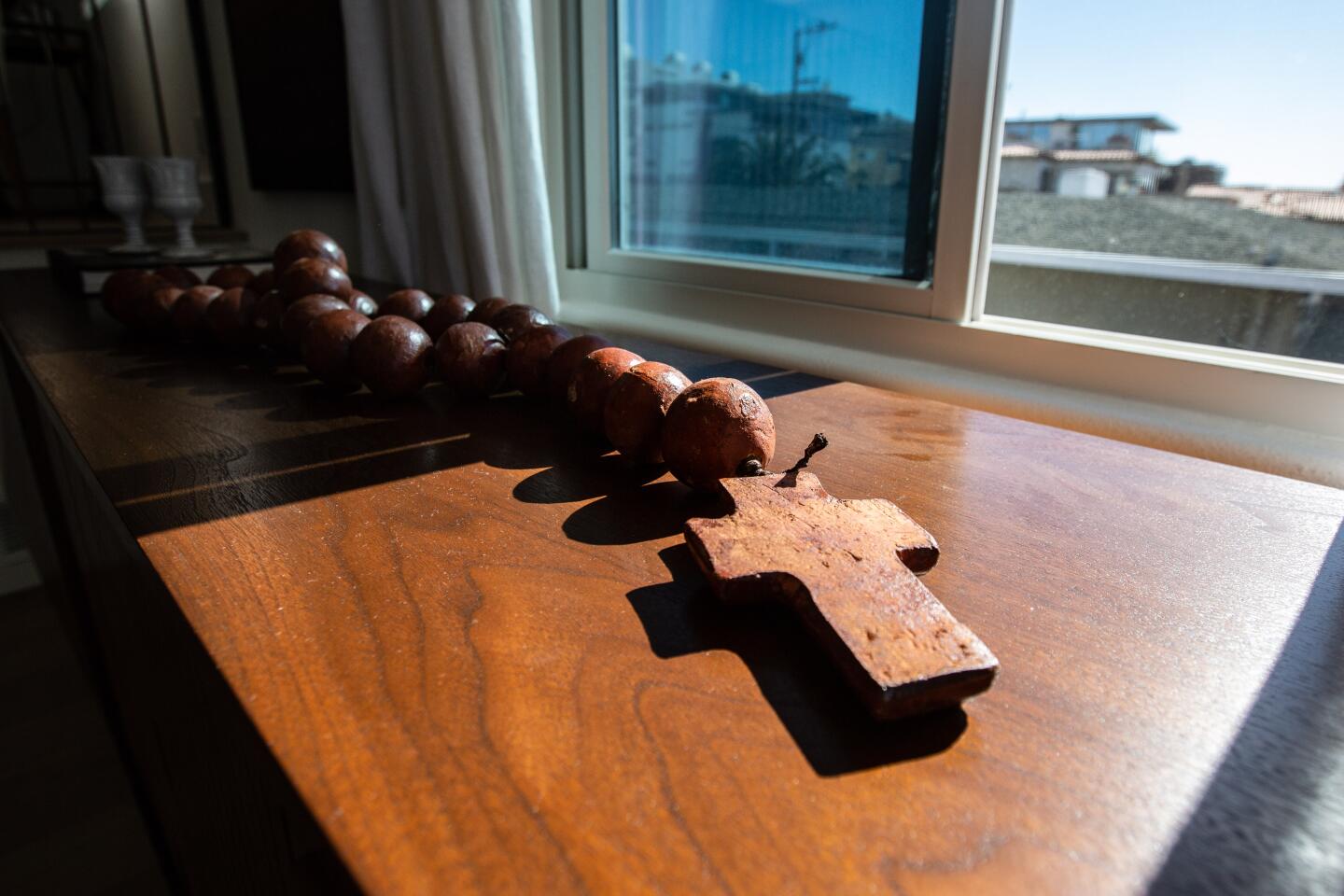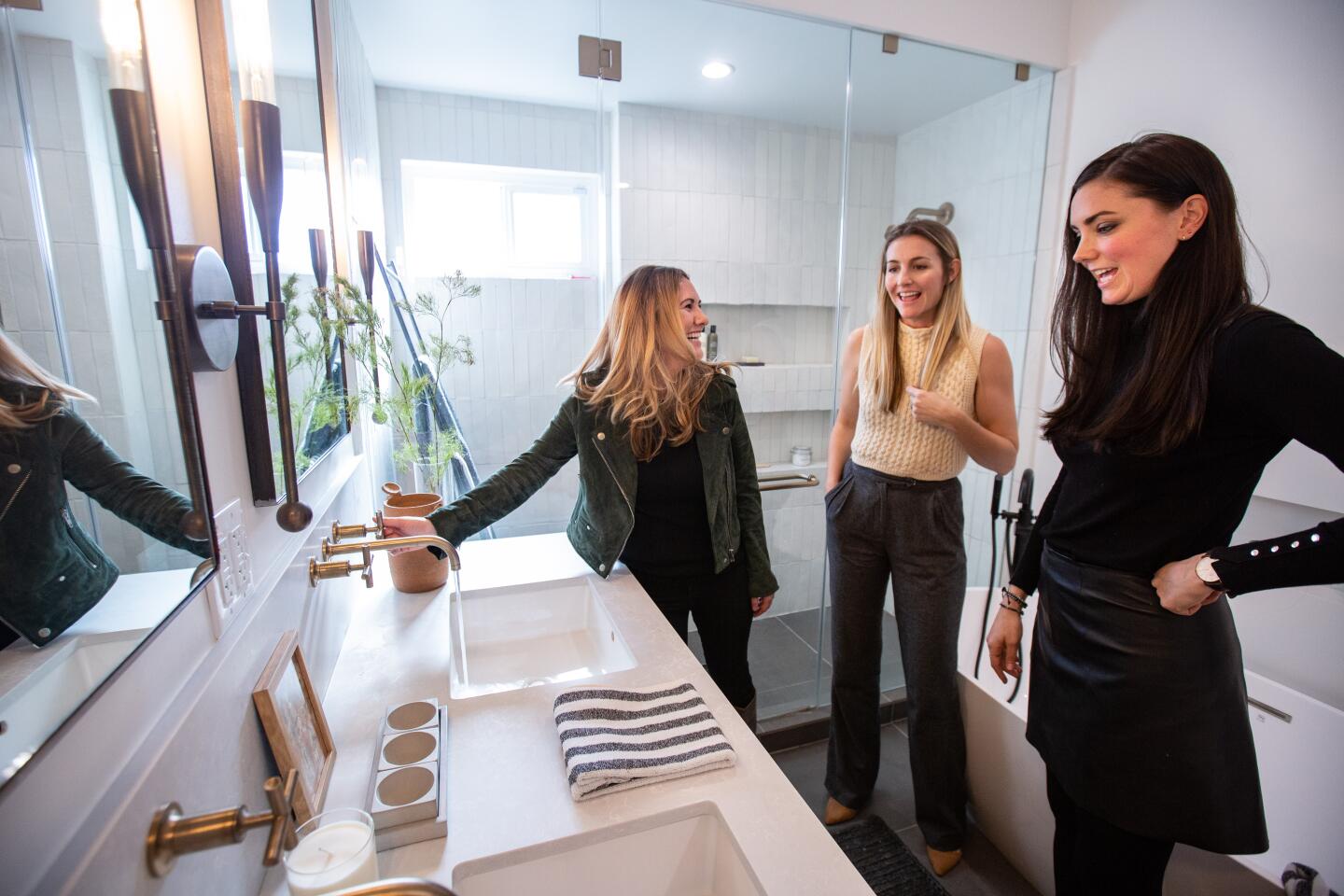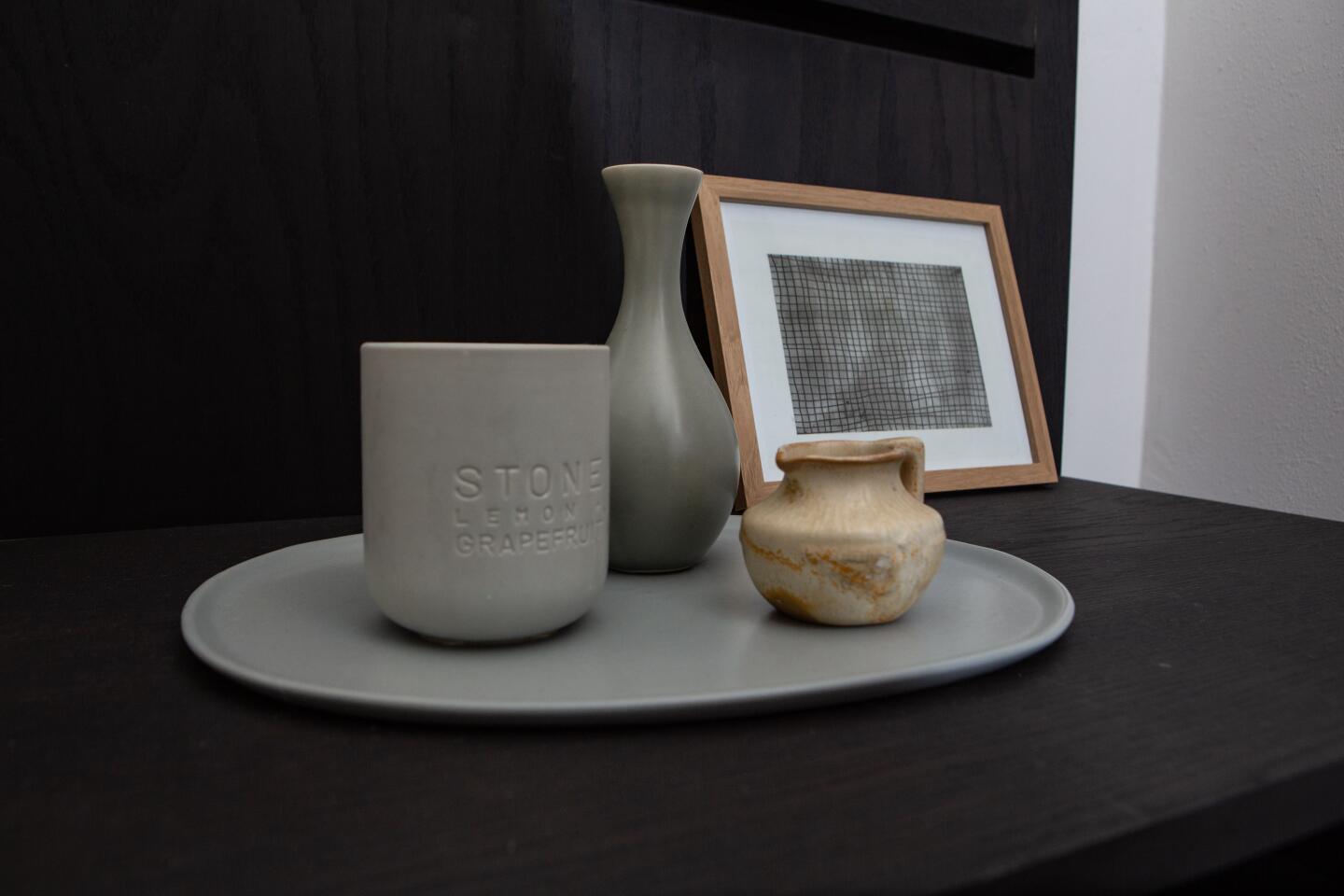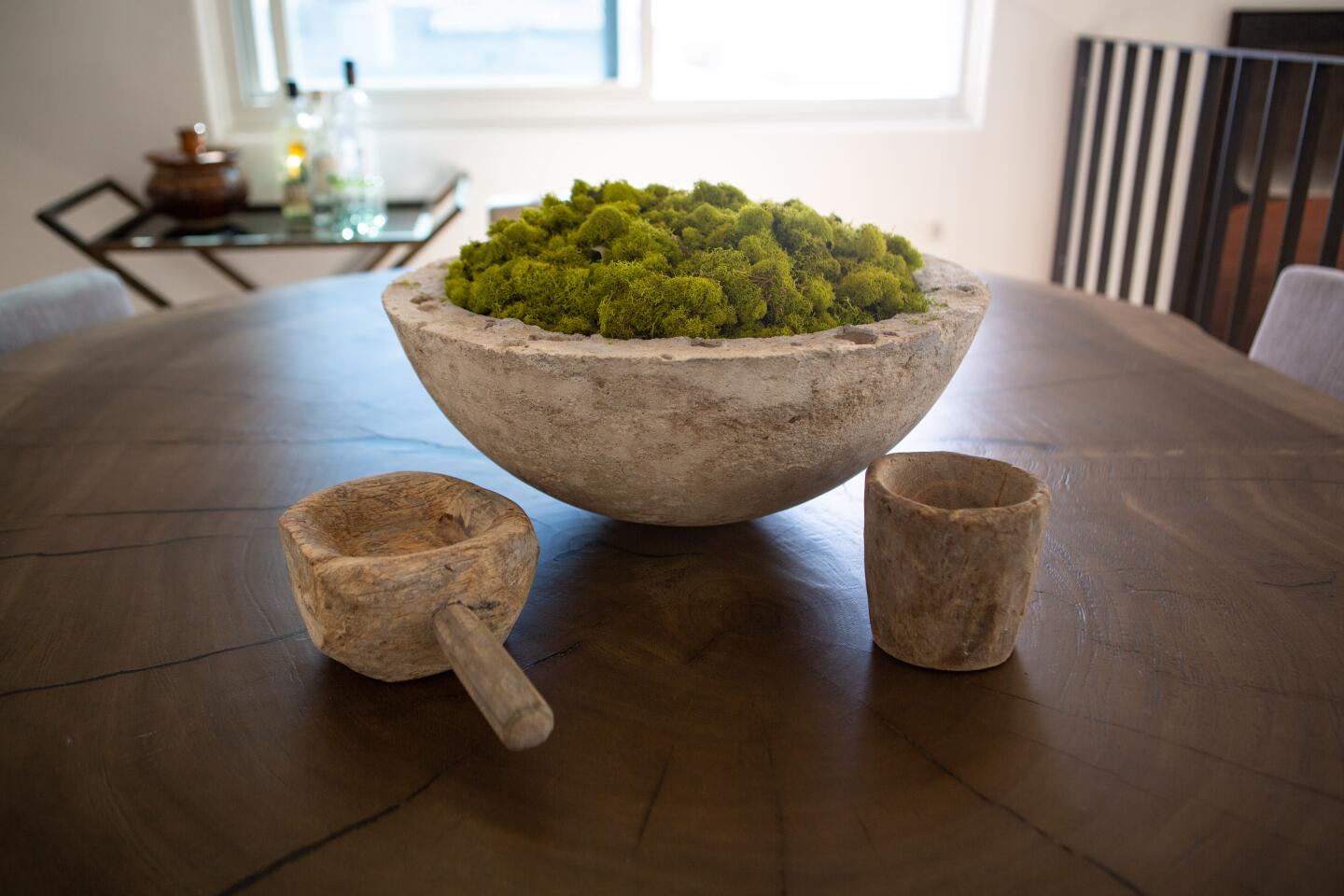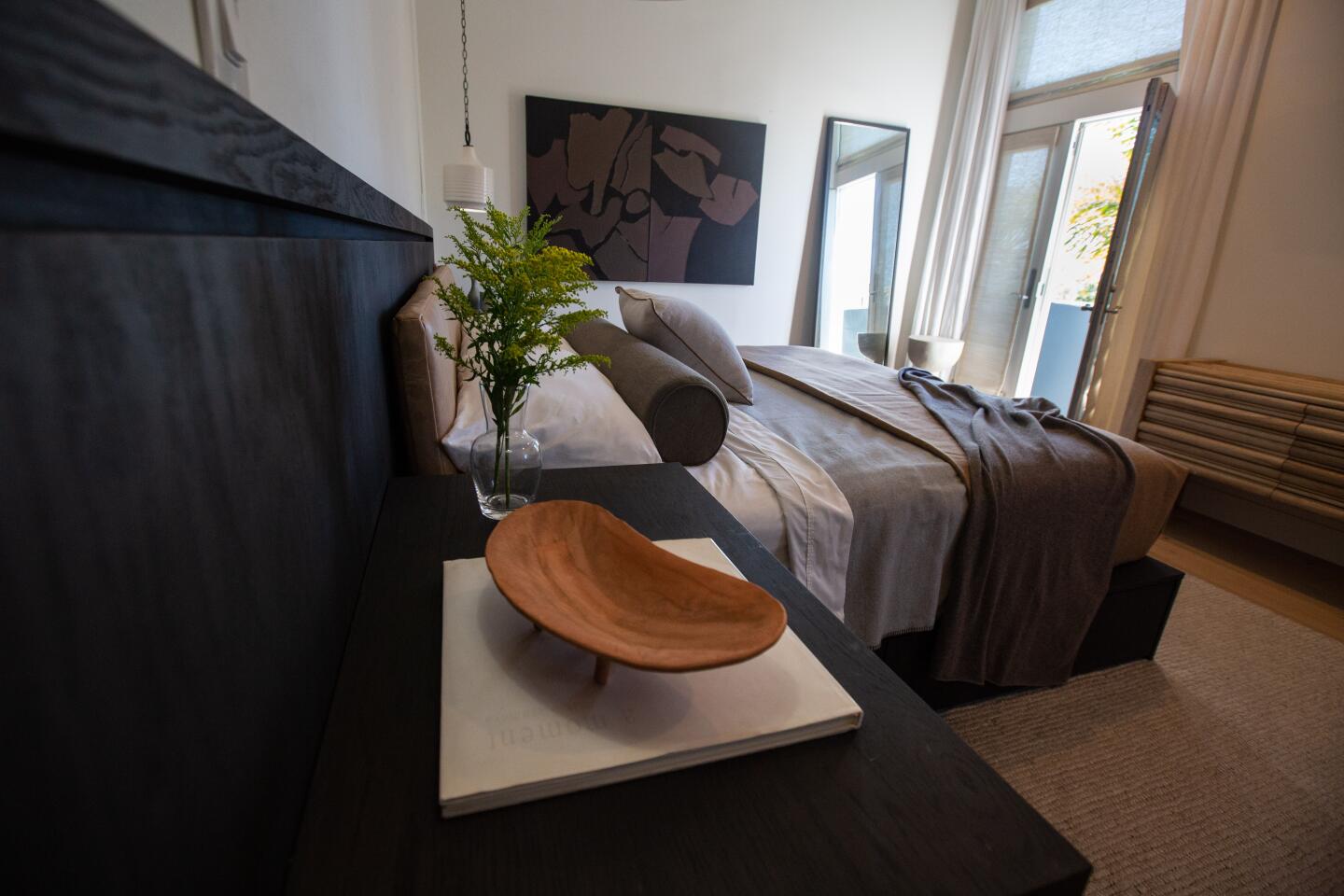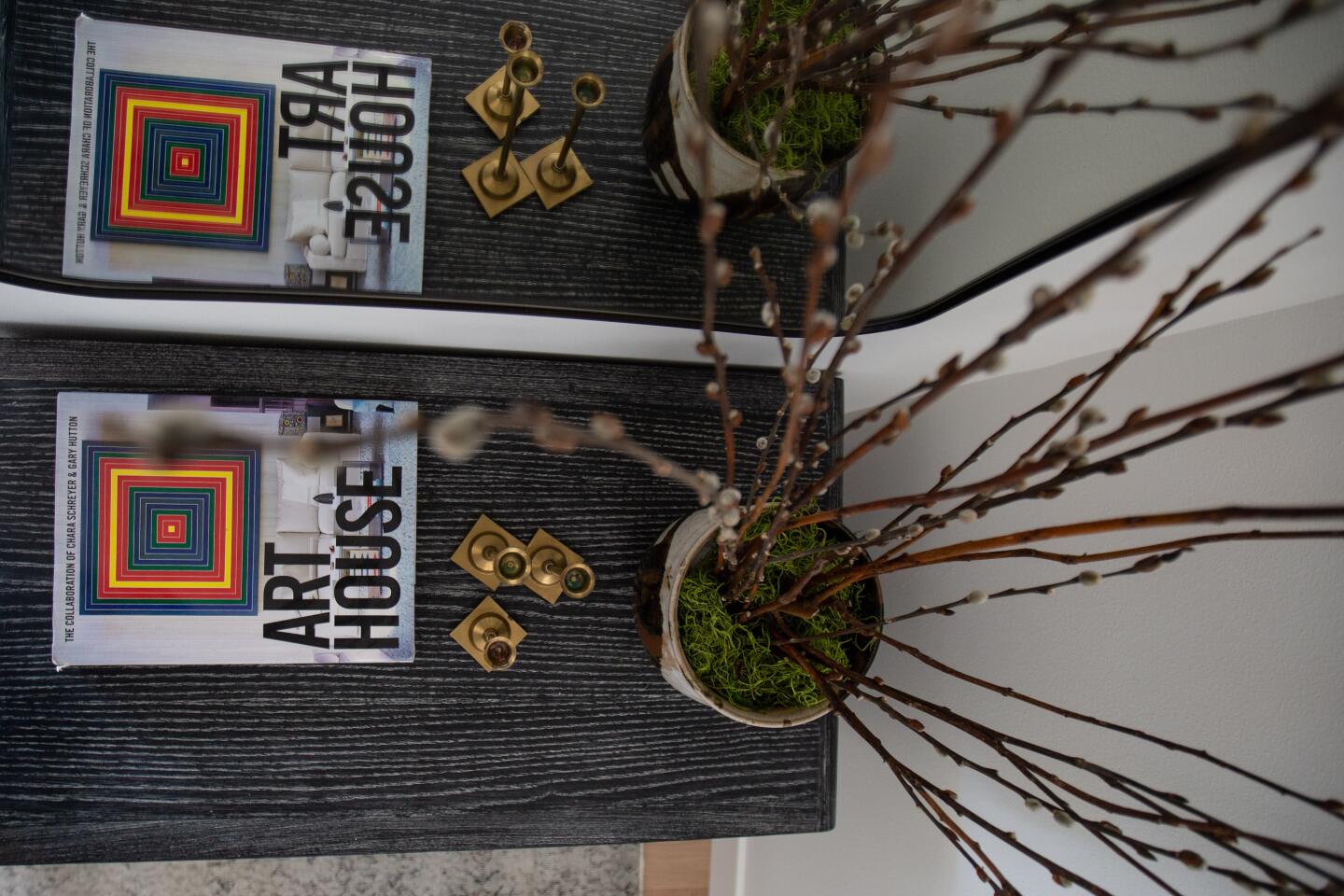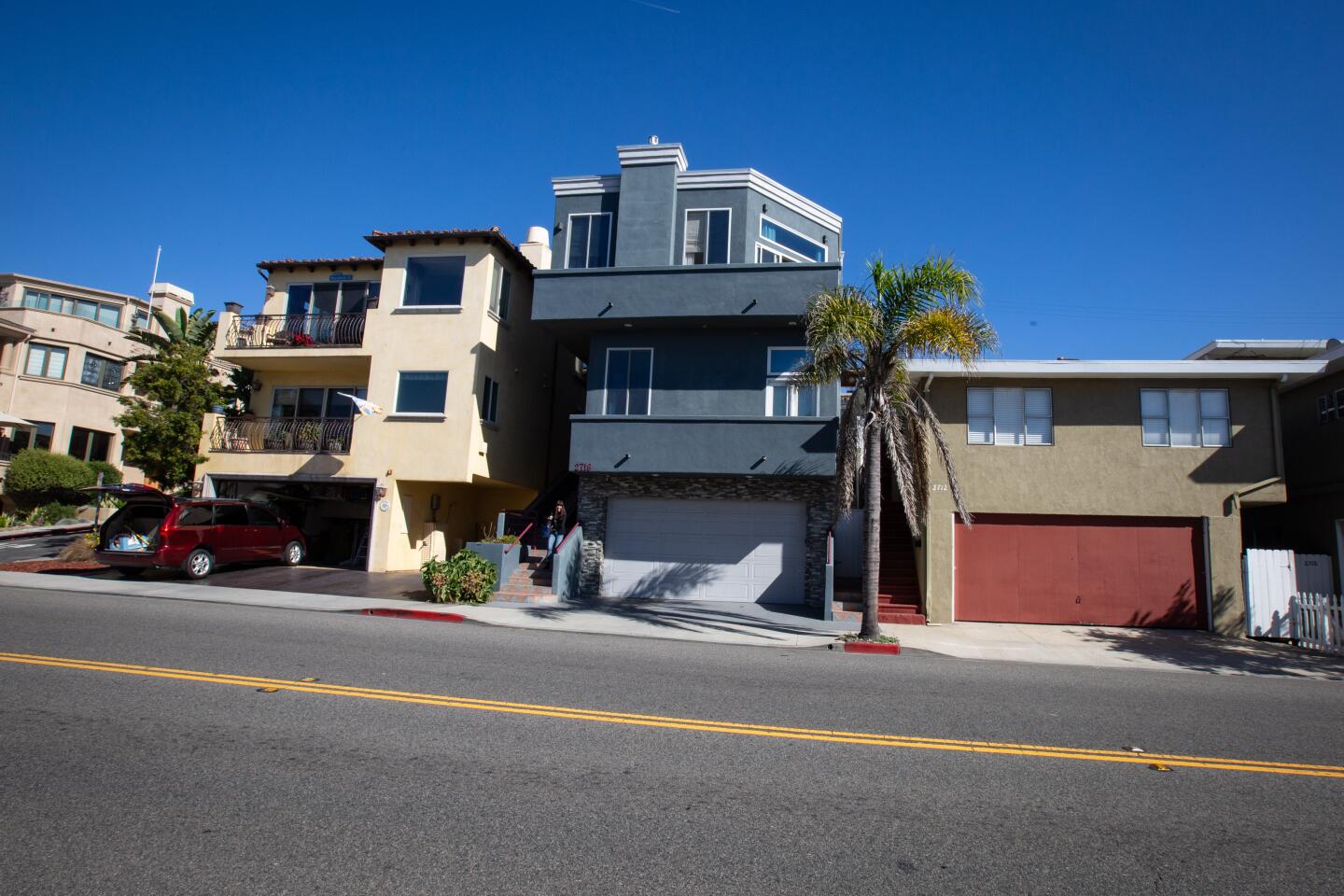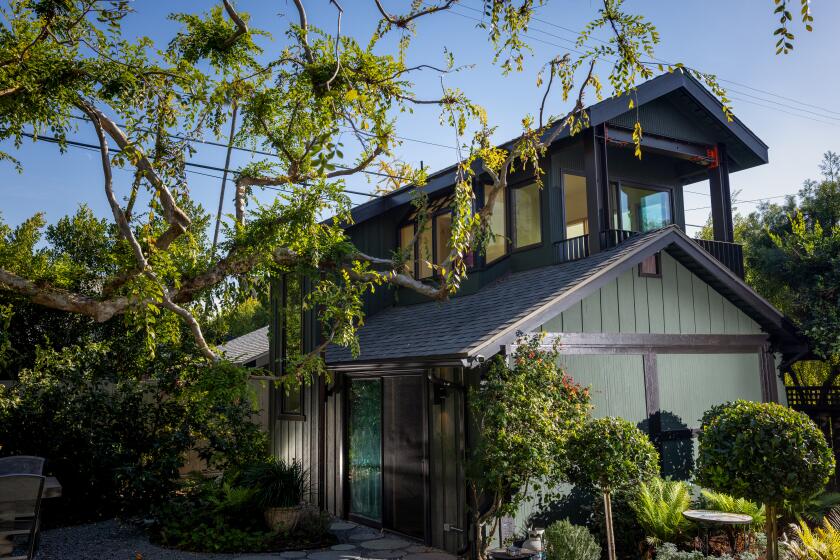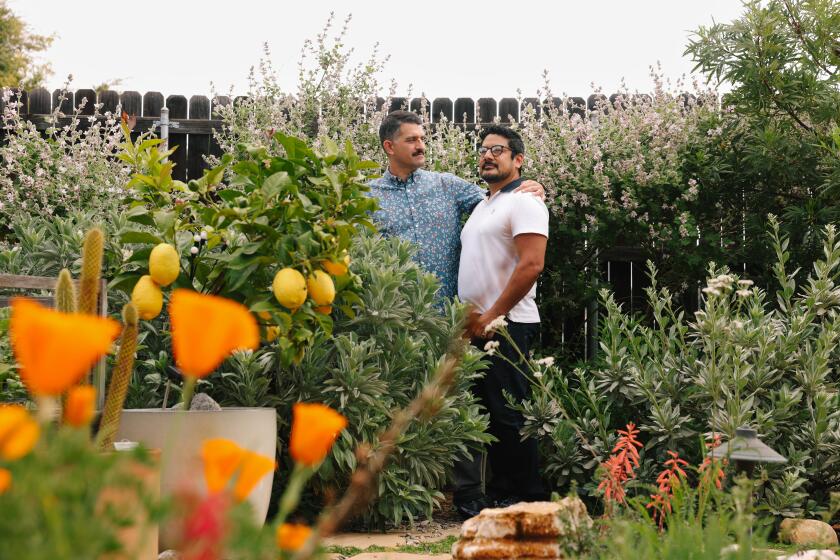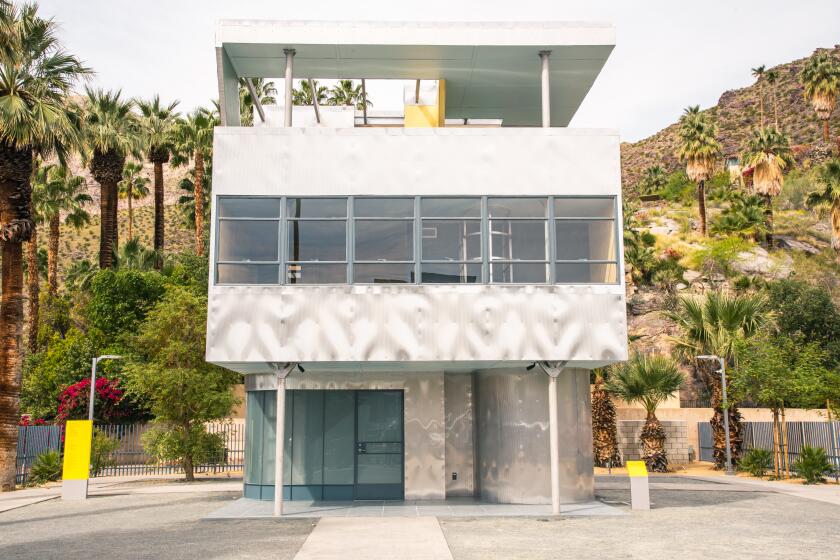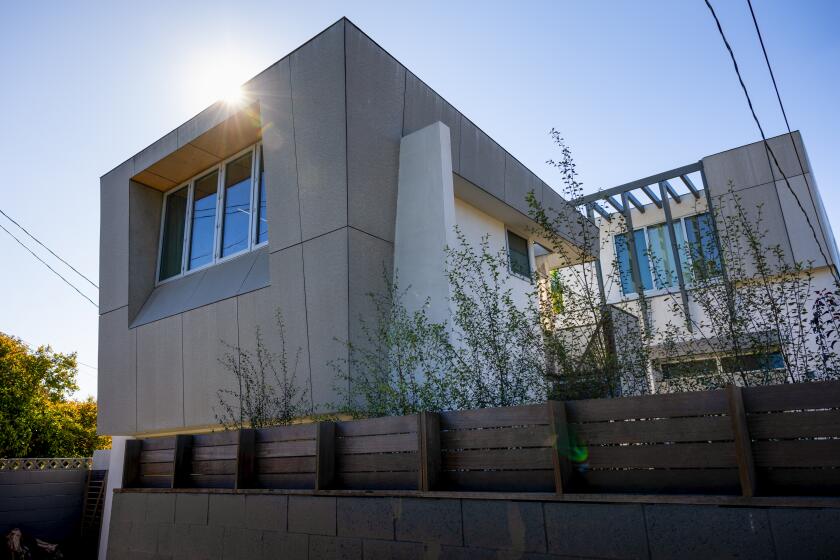Their design prescription: Laid-back luxury, homeyness and warmth
While everyone else was boogieing on the dance floor at a 2015 New Year’s Eve party, Lauren Schneider, Kelli Granello and Jenna Rochon sat and talked shop over cocktails, bonding over their mutual love for interior design and planting the seeds for what soon became the Transition State design firm.
Within two years they were taking clients, and to date they’ve brought their signature “laid-back luxury” aesthetic to 30 residential and commercial projects. Next up: a plan to launch their first product line of throw pillows in the fall.
“We’re creating this vibe with elements of New York and Europe, but making it not feel stuffy. We’ll always do a blend, like putting a CB2 table next to a vintage 1stdibs chair,” said Schneider, who studied design with Rochon at UCLA and knew Granello through a mutual friend.
To achieve a balance between “very luxe and overly relaxed,” Santa Monica-based Transition State also turns to “a lot of organic shapes and natural fabrications,” said Granello, whose background in fashion lent the team fresh insight on fabrics, product development and sourcing straight from the manufacturer.
The trio began creating their own sand-washed linens at local mills and dye houses when the colors and tones that vendors offered didn’t match their palette of blended neutrals, which Granello said they like to pair with “stark pops of saturation, like a really strong coffee table.”
Rochon said their product line will consist of both “an artful series and a more basic line of pillows that layer well together,” featuring heavily textured hand-washed bouclés and muted linens.
Their goal is to create products at an approachable price point, while still having the substantial feel of something custom-made from the Pacific Design Center.
“That’s kind of our niche. We’ll actually be adding fusing and lining and a certain tailoredness to it — stuff you do to apparel to add structure that you normally wouldn’t see in a linen pillow,” Granello said.
Where did the name Transition State come from?
Granello: In a chemical reaction, it means the point of highest potential when two molecules meet and crash into each other. At the end of the reaction, those two molecules can never go back to their original condition, which is kind of poetic.
What are the biggest differences between residential versus commercial projects?
Schneider: Every residential client wants their house to feel like a hotel, and every hotel client wants their space to feel like a home. It’s such an overlap. Jenna’s and my background is in commercial hospitality so we tend to love a process, and that’s the one thing with residential — it’s just a free-for-all and you never really know what you’re going to get.
Walk me through the different services you offer.
They’re all chiming in here, finishing each other’s sentences: Landscape design, space planning, procurement — doing the actual purchasing for the client — graphic design for commercial clients, signage, lighting, permitting, coding or anything that has to do with the architectural plans that go to the city, art curation and even styling, if someone just needed us to come in and do the finishing touches.
Tell me about some of your favorite projects you’ve worked on.
Schneider: A one-story, sprawling Spanish Brentwood hacienda. The owner had amazing taste so it was a super-fun collaboration process. It was a turning point because before we didn’t have clients who had that type of budget, knowledge and trust to let us do some weird stuff in her house.
What are some of the biggest challenges homeowners face when it comes to designing their homes?
Granello: A lot of our clients are on the younger curve, so for a lot of them we’re their interior designer guinea pigs. Shows on HGTV kind of create misconstrued expectations on timelines, budget and construction detailing. We try to do a really good job of making the first time at this process feel good because it’s expensive, takes a long time and you’re working with a lot of different personalities.
What are some of the trends you’re seeing out of homeowners?
Rochon: I feel like people are really into warm woods and vintage mixed with modern — still clean but with a little grit to it as well. There’s a general sense of everyone moving towards homeyness and warmth.
